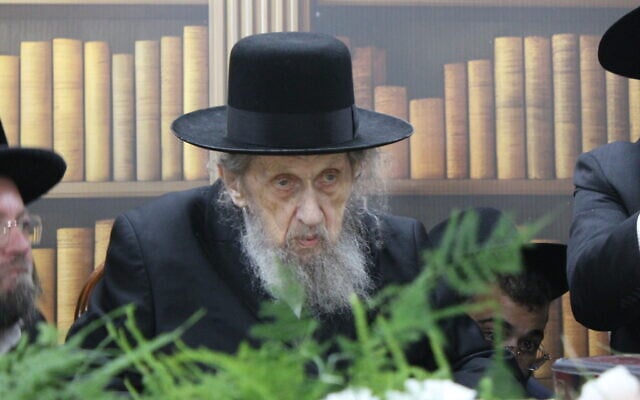The Torah’s vision of leadership is profoundly anti-Trumpian
We have seen this movie before. Different costumes, same plot. A loud outsider storms the stage promising redemption without repentance, power without responsibility, miracles without morals. The Jews, exhausted by history and bruised by exile, are told once again: This one will save you. And once again, too many are tempted to believe it. Just what the Jews needed—another false messiah. This time in a red tie, not sandals. His name is Donald Trump.
Judaism has an ancient allergy to messianic shortcuts. We are the people who buried Shabbatai Tzvi under layers of trauma, who learned—painfully—that charisma is not prophecy and power is not holiness. The Rambam warns that messianism is not proven by spectacle but by substance: justice, humility, wisdom, restraint. And yet here we are, watching Jews—especially religious Jews who should know better—suspend 3,000 years of theological caution for a man whose defining traits are vulgarity, cruelty, and self-worship.
Trump is not a messiah. He is not even a kosher strongman. He is a mirror, reflecting back our worst instincts: fear masquerading as faith, tribalism masquerading as Torah, and political idolatry masquerading as gratitude.
Yes, he moved the embassy. Yes, he said nice things about Israel. Yes, he weaponized evangelical love for Zion as a geopolitical bargaining chip. And for this, many Jews—particularly on the right—decided to forgive everything else: the lies, the incitement, the authoritarian flirtations, the casual antisemitic tropes about money and loyalty, the open courting of white nationalists who do not love Jews but merely tolerate them as long as they serve a narrative.
This is not pragmatism. This is theological malpractice.
Judaism does not teach us to bow to kings who flatter us. Pharaoh praised Joseph too—until he didn’t. Cyrus liberated the Jews—without demanding their souls in return. Trump, by contrast, demands loyalty not to law, not to truth, not even to country, but to himself. That alone should disqualify him in Jewish moral thought. Kings in Israel were bound by Torah. Prophets rebuked them publicly. Trump cannot tolerate rebuke from anyone—certainly not from Jews quoting inconvenient verses about justice for the stranger or humility before God.
And let us talk plainly about the danger here. False messiahs do not only fail; they corrupt. They teach people to confuse power with righteousness and victory with virtue. They train communities to excuse the inexcusable as long as “our side” wins. This is precisely how religious movements rot from the inside. Avodah Zarah does not begin with statues; it begins with excuses.
When rabbis turn Trump into a divine instrument rather than a deeply flawed politician, they are not being strategic—they are being reckless. When yeshiva students are taught that criticism of Trump is heresy, Torah becomes propaganda. When Jews cheer attacks on democratic norms because “it helps Israel” or “hurts our enemies,” they forget that Judaism survived empires precisely because it refused to sanctify them.
The tragedy is not that Trump exists. History always produces men like him. The tragedy is that Jews—who should be the most skeptical people on earth when it comes to strongmen and saviors—fall for it anyway. We, of all people, are supposed to know that salvation does not come riding on ego, grievance, and rage.
The Torah’s vision of leadership is almost boring by modern standards: restraint, law, accountability, fear of Heaven. Trump offers the opposite: spectacle, dominance, vengeance, and the thrill of transgression. He does not elevate Jewish values; he tempts Jews to abandon them in exchange for access and applause.
And let us not pretend this is only about Trump. He is a symptom. The deeper sickness is a Judaism that has grown impatient with ethics and intoxicated with power. A Judaism that wants protection without responsibility, sovereignty without morality, victory without soul. Trump simply gave that impulse a human face—and a megaphone.
Messianism is seductive because it promises an end to complexity. Trump promises to crush enemies, silence critics, and restore greatness by sheer force of will. Judaism promises something far harder: struggle, law, self-critique, and the slow, grinding work of moral responsibility in an imperfect world. One path is easy and loud. The other is ancient and demanding.
We should know which one is ours.
Donald Trump is not the Messiah. He is not even close. And the more Jews insist on treating him like one, the more we repeat the oldest mistake in Jewish history—placing our faith in men who demand worship instead of accountability.
Just what the Jews needed? No. What we need is the courage to say no—to false saviors, to political idolatry, and to the cheap thrill of power without conscience. Redemption will not come from a billionaire strongman. It never has. It never will.
The Torah warned us. History confirmed it. The only question is whether we remember in time.
 |
| REPUBLISHED |
https://blogs.timesofisrael.com/just-what-the-jews-needed-another-false-messiah-donald-trump/


























